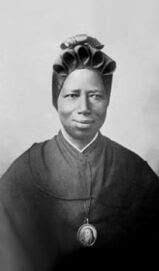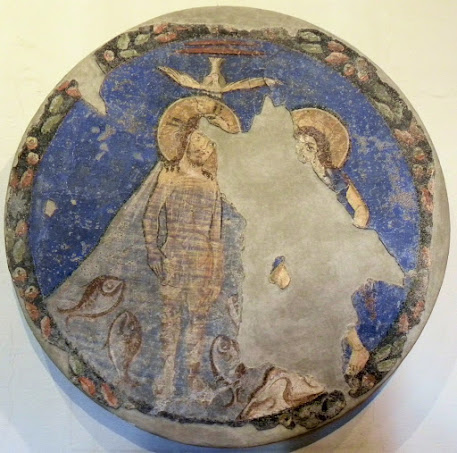Slavery has been outlawed in the United States since the 13th amendment was ratified in 1865. It was abolished in 1888 in Brazil and in 1926 by the League of Nations. In 1948 the United Nations General Assembly adopted the Universal Declaration of Human Rights, including the article: "No one shall be held in slavery or servitude; slavery and the slave trade shall be prohibited in all their forms."
So what does this have to do with today's saint? She was a slave. Bakhita, which means "fortunate", was born about 1869 in southern Sudan, kidnapped at the age of seven, and sold several times as a slave. In 1883 she was sold to the Italian consul in Sudan and two years later "given" to his friend from Italy. She then became a babysitter to the friend's daughter, joining the Church in 1890, taking the name Josephine. When the friend wanted to take his daughter and Josephine back to Africa, Josephine refused, and the case went to court. The Patriarch of Venice and the Canossian sisters intervened and the judge concluded that since slavery was illegal in Italy, Josephine had been free since 1885! She joined the Canossian Sisters in 1893 and remained with them as a gatekeeper for a compound that included a kindergarten, orphanage, recreational center, and school until her death in 1947.
St. Josephine Bakhita had many owners, but only one Master. She wrote, "Seeing the sun, the moon, and the stars, I said to myself: who could be the Master of these beautiful things? And I felt a real desire to see him, to know him and to pay him homage." God is our master, but one who has set us completely free by saving us from sin through Jesus Christ. We are blessed beyond all telling!
*https://nunspeak.files.wordpress.com/2010/10/bakhita-01.jpg


